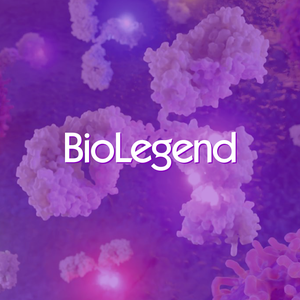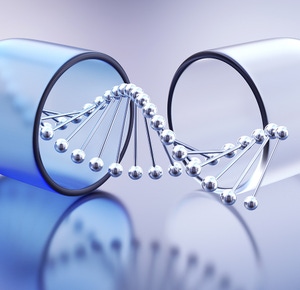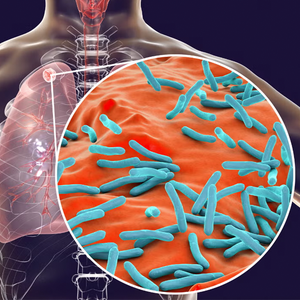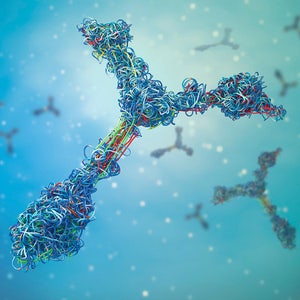
STAT Prenatal Whole Exome Sequencing, TRIO
STAT Prenatal Whole Exome Sequencing, TRIO
STAT Prenatal Whole Exome Sequencing, TRIO
STAT prenatal whole exome sequencing (WES)
| Test Code | D1310E |
|---|---|
| Test Summary |
STAT prenatal whole exome sequencing (WES) |
| Turn Around Time | 7 - 10 days |
| Acceptable Sample Types | Cultured Amniocytes , Cultured Chorionic Villi , DNA, Isolated , Products of Conception |
| Acceptable Billing Types | Institutional Billing , Self (patient) Payment |
| NY Approved | No |
| CPT Codes** | 81415(x1), 81416(x1), 81479(x2), 81460(x1) |
| Self (patient) Price | $3,200.00 |
|---|---|
| Institutional Price | $4,100.00 |
**The CPT codes listed are in accordance with Current Procedural Terminology, a publication of the American Medical Association, and are provided for informational purposes only. CPT coding is the sole responsibility of the billing party.
This testing service has not been cleared or approved by the U.S. Food and Drug Administration. Testing services may not be licensed in accordance with the laws in all countries. The availability of specific test offerings is dependent upon laboratory location.
Test information
Test description
This STAT test is for prenatal use and involves sequencing the whole exome with a mean coverage of 100x, enhanced coverage of known disease-causing genes, and curated deep-intronic variants. The WES test will reliably detect the majority of copy number variations (CNVs) of 3 exons or greater. Smaller CNV events may also be detected and reported, but additional follow-up testing is recommended if a smaller CNV is suspected. The WES assay will also detect microdeletion/duplication events greater than 500kb in clinically relevant regions, although follow-up testing may be warranted to better delineate the exact size of the event and confirm breakpoints. Secondary findings per American College of Medical Genetics (ACMG) recommendations may be requested; however, secondary findings will not be reported for ongoing pregnancies. Proband only, duo, trio and quad testing options are available, with parental reports included on duo, trio and quad testing if specifically requested.
Maternal cell contamination (MCC) is offered as a stand-alone test and is required to accompany prenatal testing for samples derived from amniotic fluid, and chorionic villi sampling. MCC study can be requested on other prenatal / fetal samples at the ordering provider's discretion.
Indications for testing
- Increased NT/cystic hygroma
- Fetal anomaly
Condition description
The purpose of this test is to find the underlying genetic cause for prenatal findings.
Test methods and limitations
Sequencing is performed on genomic DNA enriched for the exome using a sequence capture method. Direct sequencing of the amplified captured regions was performed using 2X150bp reads on Illumina next-generation sequencing (NGS) systems. A base has sufficient coverage at 20X, and an exon is considered fully covered if all coding bases plus three nucleotides of flanking sequence on either side are covered at 20X or more. If any, a list of low-coverage regions is available upon request. Alignment to the human reference genome (hg19) is performed, and annotated variants are identified in the targeted region. Variants reviewed have a minimum coverage of 8X and an alternate allele frequency of 20% or higher. Indels and single nucleotide variants (SNVs) may be confirmed by Sanger sequence analysis before reporting at the director's discretion. This assay cannot detect variants in regions of the exome that are not covered, such as deep intronic, promoter, and enhancer regions, and areas containing large numbers of tandem repeats. This assay does not cover genes and exons located in pseudogene regions. Copy number variation (CNV) analysis detects deletions and duplications; in some instances, due to the size of the exons, sequence complexity, or other factors, not all CNVs may be analyzed or may be difficult to detect. CNV analysis will not detect tandem repeats, balanced alterations (reciprocal translocations, Robertsonian translocations, inversions, and balanced insertions), methylation abnormalities, triploidy, and genomic imbalances in segmentally duplicated regions. This assay is not designed to detect mosaicism; possible cases of mosaicism may be investigated at the discretion of the laboratory director. Primary data analysis is performed using Illumina bcl2fastq converter v2.19. Secondary analysis is performed using Illumina DRAGEN Bio-IT Platform v.3.4.12. Tertiary data analysis is performed using SnpEff v4.3t and Revvity Omics' internal ODIN v.1.01 software. CNV and absence of heterozygosity are assessed using BioDiscovery’s NxClinical v6.1 software.
Detailed sample requirements
Products of Conception
| Collection Container(s) |
Sterile, screw-top container filled with tissue culture transport medium. |
|---|---|
| Collection |
All prenatal specimens will be tested for maternal cell contamination (MCC). Send maternal blood (EDTA tube) for comparison. Transport products of conception and/or fresh tissue (minimum: 10 mg) in a sterile, screw-top container filled with tissue transport medium. Do not place in formalin. If the specimen is too large for a normal collection tube, a larger sterile container can be used. |
| Sample Condition |
If the autopsy is performed: Facia lata, diaphragm, tendon, skin, tissue from internal organs (if fresh), chest wall cartilage (particularly if macerated), or placenta from fetal side. If no autopsy is performed: Placenta from fetal side is preferred, e.g., villi. Umbilical cord is also acceptable. State clearly in the TRF whether the tissue was of fetal or placental in origin. |
| Shipping |
Shipped immediately at ambient temperature or with a cold pack, especially under hot weather to the laboratory by overnight express with arrival Monday-Friday only. Alternatively, fresh POC and/or tissue samples can be snap-frozen and kept at -80°C. Frozen tissue samples should be shipped overnight on dry ice with arrival Monday-Friday only - NO WEEKEND SHIPMENTS! |
| SPECIAL SAMPLE INSTRUCTIONS |
For prenatal samples, Revvity Omics will provide a shipping label to use for shipping the sample to our lab. Please call 1 (866) 354-2910 to arrange this. At this time, you will also be connected to a laboratory genetic counselor to answer any questions about the testing. For samples originating outside of the United States, please contact your nearest Revvity Omics laboratory for more information. |
Cultured Amniocytes
| SPECIAL SAMPLE INSTRUCTIONS |
Please contact a Revvity Omics Laboratory genetic counselor for information on prenatal test requests and acceptable sample types. |
|---|
DNA, Isolated
| Collection |
Required DNA Quantity by Test Type*:
|
|---|---|
| Sample Condition |
* Required DNA Quality: High molecular weight DNA (>12kb). A260/A280 reading should be ≥ 1.8. A260/230 a ratio range of 1.8 to 2.2. Contact the laboratory for specific amounts if total ng cannot be met. |
| Shipping |
Ship overnight at ambient temperature. |
| SPECIAL SAMPLE INSTRUCTIONS |
|
Cultured Chorionic Villi
| Collection Container(s) |
Two T-25 flasks |
|---|---|
| Collection |
All prenatal specimens will be tested for maternal cell contamination (MCC). Send maternal blood (EDTA tube) for comparison. If blood is unavailable, we will accept genomic DNA and Saliva sample types. |
| Sample Condition |
Transfer cultured amniocytes or cultured CVS to two T-25 flasks at ≥80% confluence. |
| Shipping |
Cultures topped off with sterile medium and shipped immediately at ambient temperature by overnight express with arrival Monday-Friday only. |
| SPECIAL SAMPLE INSTRUCTIONS |
For prenatal samples, Revvity Omics will provide a shipping label to use for shipping the sample to our lab. Please call 1 (866) 354-2910 to arrange this. At this time, you will also be connected to a laboratory genetic counselor to answer any questions about the testing. For samples originating outside of the United States, please contact your nearest Revvity Omics laboratory for more information. |
Resources


How To Order
Choose Your Test
Select the correct test for your patient, and download and fill out the Clinical Genomics test requisition form.
Collect Sample
Obtain a sample for testing from the patient using one of the provided Revvity Omics test packs.
Send Samples
Send samples and all required forms back to Revvity for processing using pre-paid shipping label.
How can we help you?
We are here to answer your questions.







































